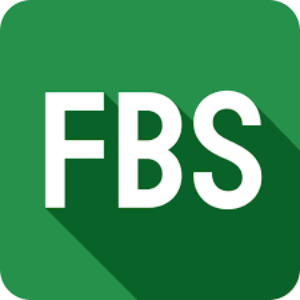
Options trading can be exciting, but a good options trading broker can make all the difference. When choosing an options trading broker, it is best to go with one that you can trust and that will handle your trades in a very efficient manner. With so many options available, it can be overwhelming to select one that fits your needs. Selecting the best broker for option trading will be very difficult if one does not understand what features a given broker has to offer.
I have observed that some brokers cater specifically to novice traders, providing educational resources and user-friendly platforms. Meanwhile, others focus on advanced traders, offering sophisticated tools and access to a wider range of options trades. Knowing what each broker provides can help you choose wisely, depending on your experience level and trading goals.
Venturing into options trading can feel complex, but with the right broker, it becomes more manageable. By exploring the available options, I aim to help you find a broker that aligns with your trading strategy and investment style.
| Broker | Key Features | Best For | Commission Structure | Platform Highlights |
|---|---|---|---|---|
| Webull |
|
Mobile traders and beginners looking for zero-commission options | Zero-commission fee structure | Live-streaming channels with expert discussions on market trends |
| IG |
|
Traders who value education and practice before real trading | Competitive per-contract pricing | Integration with ProRealTime and TradingView |
| eToro USA |
|
Social learners who benefit from community experience | Social-focused commission structure | Copy trading functionality and social network integration |
| Firstrade |
|
Cost-conscious traders seeking research insights | Zero commissions for options trading | AI-powered investment suggestions and analytics |
| Moomoo |
|
Technically-oriented beginners seeking analytical tools | Competitive per-contract pricing | Dynamic password generation and advanced security protocols |
Understanding Options Trading
Options trading can be a powerful way to invest in the stock market. It allows traders to leverage their investments through various strategies. I will discuss the basics of options, the types of options available, and the significance of the underlying asset.
Options Fundamentals
Options are contracts that give the buyer the right, but not the obligation, to buy or sell an underlying asset at a predetermined price, known as the strike price. Each options contract typically represents 100 shares of the underlying asset. There are two main types of options: call options and put options. A call option allows the buyer to purchase the asset, while a put option gives the buyer the right to sell it. Traders must understand the specifications of each option, including expiration dates and pricing, to devise effective options trading strategies.
Types of Options
There are primarily two types of options: American and European. American options can be exercised at any time before the expiration date, offering more flexibility for traders. In contrast, European options can only be exercised on the expiration date itself. Additionally, options can be classified based on their risk profiles, such as naked options and covered options. Naked options involve selling options without owning the underlying asset, which can be riskier. Covered options, on the other hand, involve holding the asset to offset potential losses, making it a safer choice for cautious investors.
Importance of the Underlying Asset
The underlying asset is crucial in options trading. This asset could be stocks, ETFs, or other securities. The performance of the underlying asset directly influences the value of the options contract. For example, if I decide to buy a call option for a stock, I must analyze the stock’s market trends and performance. Understanding how the underlying asset behaves will help me make informed decisions about which options to trade. Additionally, different assets can have varying levels of volatility, which also impacts options pricing and strategies.
Engaging with options effectively requires a good grasp of these fundamentals, types, and the significance of the underlying assets. By familiarizing myself with these aspects, I can better navigate the complexities of options trading.
Top 5 Options Trading Brokers for Beginners

- Webull: Webull is an ideal platform for beginners with its user-friendly interface and comprehensive mobile app that allows trading on the go. The platform offers a zero-commission fee structure, which is particularly attractive for new traders trying to minimize costs. Webull also provides a range of educational resources, including trading courses and live-streaming channels where experts discuss market trends and strategies in real time.
- IG: IG is renowned for its educational resources and user-friendly trading platforms. It offers a demo account where beginners can practice trading without financial risk using virtual money. IG’s platform supports a variety of trading tools and charts, including integration with ProRealTime and TradingView, which provide advanced charting capabilities for detailed technical analysis. Their educational content covers everything from the basics of options trading to advanced strategies, making it a great learning hub.
- eToro USA: eToro is particularly known for its social trading features, allowing beginners to mirror the trades of experienced investors. This not only helps new traders learn from successful investors but also enables them to make potentially profitable trades while still learning the ropes. eToro also offers an array of educational materials and a community discussion board where traders can exchange tips and advice.
- Firstrade: Firstrade offers a solid platform for beginners with zero commissions on options and stocks, which helps reduce trading costs significantly. The platform provides access to a wealth of research tools and data, including contributions from Morningstar and Benzinga. Firstrade has also integrated advanced AI tools to provide personalized trading insights, helping beginners make smarter investment decisions.
- Moomoo: Moomoo is known for its technologically advanced platform that provides detailed analytical tools and real-time data which is crucial for making informed trading decisions. The platform’s user-friendly interface and educational resources make it easy for beginners to understand and engage with the market effectively. Moomoo also emphasizes security with features like dynamic password generation, enhancing safety for new users.
Why are these the top 5 options trading brokers?
- User-Friendly Platforms: All these brokers provide platforms that are easy to navigate and understand, which is crucial for beginners who may find the trading environment daunting. User-friendly interfaces help simplify the trading process, making it less intimidating for those new to the field.
- Educational Resources: These brokers offer extensive educational materials that are tailored to help beginners learn the basics of options trading and advance to more complex strategies. This includes webinars, tutorials, courses, and real-time trading advice, all of which are essential for building a solid trading foundation.
- Cost Efficiency: Most of these platforms have a low cost of entry, offering zero or low commission fees on trades. This is particularly important for beginners who might be starting with smaller account balances and want to maximize their investments without being hindered by high costs.
- Demo Accounts and Simulation Tools: Platforms like IG provide demo accounts where beginners can practice trading with virtual money. This feature allows new traders to gain experience and confidence without risking actual capital.
- Social Trading Features: Platforms such as eToro offer social trading features, which enable beginners to learn from more experienced traders by observing and even copying their trades. This peer-learning opportunity is invaluable as it provides practical, real-world insights and a way to learn strategies that have been effective for others.
- Advanced Tools and Integration: These brokers integrate with advanced tools and software like ProRealTime, TradingView, and various AI technologies, offering beginners access to high-level analysis and personalized insights that can guide their trading decisions.
- Security Measures: With the growing concern over online security, brokers like Moomoo emphasize features that enhance user security, such as dynamic password generation and advanced encryption, ensuring that beginners can trade with peace of mind.
- Support and Community Interaction: Having a supportive community and accessible customer service can greatly enhance the learning curve for beginners. Platforms that offer robust support and active community boards help beginners get answers to their queries and learn from the collective experience of the community.
Selecting Options Trading Brokers

Choosing the right options trading broker is crucial for a successful trading experience. I will discuss important factors to consider, such as reliability, fees, and commissions. These aspects will help you make an informed decision about which broker best meets your needs.
Broker Reliability and Reputation
When selecting a broker, reliability and reputation are key. I look for options brokers with a strong track record and positive reviews. Checking regulatory compliance with organizations like the Financial Industry Regulatory Authority (FINRA) ensures they follow the right practices.
I also prefer brokers that offer educational resources and customer support. This helps me navigate complex options trading strategies. User reviews and ratings can provide insights into how well a broker handles issues and supports its clients.
Account Minimums and Contract Fees
Account minimums and contract fees can significantly impact my trading costs. Some brokers require a minimum deposit to open an account, which can range from $0 to several hundred dollars. I typically choose brokers with low or no minimum deposit requirements.
Contract fees also vary by broker. Common charges include per-contract fees, which can be around $0.50 to $1 per contract. I often compare these fees across brokers to find the most cost-effective option. This helps ensure my trading activities remain profitable.
Comparing Trading Commissions
Trading commissions are another important factor. I look for brokers that offer competitive rates for options trades. Most major brokers have shifted to zero-commission trading for stock trades, but options trading can still have varied costs.
Some platforms charge a flat fee per trade, while others charge based on volume. For instance, a broker may charge $0.65 per contract. I recommend creating a table to compare these commissions across several brokers. Doing this can clarify which options trading platform offers the best value for my trading strategies.
Exploring Trading Platforms

When I think about trading platforms, I consider how they can directly affect my trading experience. Key factors include usability across devices, customization options, and the tools available for analysis and decision-making. Understanding these areas helps me choose the right platform that fits my trading style.
Desktop vs Mobile Experience
The desktop experience often provides a more comprehensive view, allowing me to see multiple charts and data at once. Many platforms, like Thinkorswim from TD Ameritrade, offer advanced features that are better suited for larger screens. This may enhance my ability to perform technical analysis and manage options trades effectively.
On the other hand, the mobile experience is essential for trading on-the-go. Apps from brokers like Robinhood and Webull allow me to trade from anywhere. While they may lack some complex features, they generally offer enough functionality to close trades and monitor positions swiftly.
Customizable Platforms for Trading
One of my favorite aspects of many trading platforms is their customization. Platforms like Interactive Brokers provide tools to tailor my dashboard. I can add or remove widgets, change layouts, and set up alerts for specific stocks or options contracts. This flexibility allows me to create an environment that matches my trading strategy.
Customization can also extend to tools used for trading. Some platforms allow me to use various indicators or templates for analyzing options pricing, which can significantly enhance my trading efficiency.
Trading Tools and Analytics
Effective trading tools are crucial for making informed decisions. Platforms like E*TRADE and TradeStation offer a range of analytics tools, such as historical data, volatility measures, and options pricing models. These tools help me evaluate potential trades.
In addition, robust analytics assist in understanding market trends and price movements. For example, access to Greeks helps me determine how different factors impact my options trades, like how time decay may erode the value of a call option as expiration approaches.
I value platforms that integrate educational resources with trading tools, as they enhance my trading proficiency while I navigate the complexities of options trading.
Brokers for Advanced Traders

Advanced traders often seek specific features and tools that match their complex trading strategies. Understanding brokers that cater to this group can significantly enhance trading success. The right broker provides essential resources to manage risks, make informed decisions, and leverage market opportunities effectively.
Sophisticated Trading Features
When it comes to sophisticated trading features, brokers like Interactive Brokers and Thinkorswim stand out. These platforms offer advanced charting tools, real-time data feeds, and customizable dashboards. Traders can access a wide range of technical analysis tools, allowing for better decision-making.
The ability to execute trades quickly and efficiently is crucial. Advanced traders often use features like conditional orders and algorithms to automate their trading strategies. Some platforms also offer extended trading hours, which enables trading beyond standard market hours.
Furthermore, the integration of multiple asset classes such as stocks, ETFs, and options under one account simplifies portfolio management. Overall, a broker that offers these features can support complex trading strategies effectively.
Risk Management Tools
Risk management is vital for any advanced trader. Many top brokers provide tools to help manage risk effectively. Stop-loss orders and take-profit orders can help traders control potential losses and secure gains automatically.
Additionally, tools like portfolio margining allow for better capital efficiency. This means I can enhance my leverage while ensuring that my overall risk remains manageable. Some platforms even offer risk analytics, helping me analyze potential risks associated with different trades or strategies.
Lastly, educational resources related to risk management are beneficial. Brokers that emphasize these tools help create a safer trading environment, supporting traders in making informed decisions.
Margin Trading Options
Margin trading represents a significant aspect of advanced trading. Brokers such as Charles Schwab and E-Trade provide competitive margin rates, allowing me to leverage my investments more effectively. This means I can control larger positions with less capital, which can amplify returns.
Different brokers offer varying margin requirements and financing rates, so it’s essential to compare options. For example, some brokers may offer lower margin interest rates for specific investments or account types.
Moreover, understanding the terms of margin trading is crucial. A broker that provides clear explanations of margin calls and potential risks will ensure I stay informed. Adequate margin trading options enable advanced traders to maximize opportunities while managing their capital wisely.
Major Options Trading Brokers

In the world of options trading, selecting the right broker is crucial. Many factors like trading costs, tools, and features can impact your trading experience. Here are some important aspects to consider when looking for top options trading brokers.
Comparative Analysis of Brokers
A comparison of popular brokers should include features, costs, and user experiences. For example, Thinkorswim by TD Ameritrade is known for its advanced tools and trading features. It caters to experienced traders with options pricing of $0.65 per contract. On the other hand, Robinhood offers a commission-free structure, making it a good pick for beginners. Brokers like Interactive Brokers offer low-cost options, with a competitive $0.50 per contract, making them suitable for active traders. Charles Schwab combines solid research tools with user-friendly trading platforms, making it a favorite among many. By evaluating these factors, traders can choose a broker that fits their needs.
Tailored Options for Various Traders
Different brokers cater to unique trading styles and levels of experience. E*TRADE is ideal for options traders new to the market. It provides a wealth of educational resources and has a user-friendly platform. If you are an active trader, Tastyworks focuses on trading strategies, offering features that help in quick decision-making. For sophisticated traders, TradeStation provides a desktop platform with advanced analytics. Each broker has a distinct focus that can align with your personal trading style and experience.
Brokers With Low-Cost Options Trading
For those focused on minimizing expenses, low-cost trading platforms are essential. Brokers like Webull and Firstrade provide commission-free trades, attracting budget-conscious traders. Additionally, Moomoo offers per-contract pricing comparable to major platforms, enhancing accessibility for all traders. Fidelity also features competitive pricing with great research tools, beneficial for both novices and seasoned traders. By choosing a broker that emphasizes low-cost options, you ensure that fees do not eat into your profits.
These aspects provide a comprehensive look at the best options trading brokers available today.
Educational Resources and Customer Support
Having access to the right educational resources and effective customer support is essential for anyone involved in options trading. Quality education can help traders make informed decisions, while responsive customer service can resolve issues quickly, enhancing the trading experience.
Availability of Educational Content
Many brokers provide extensive educational resources tailored for options trading. This includes articles, videos, and interactive tutorials that explain the basics of options, strategies, and risk management. For instance, Thinkorswim offers a robust learning center that covers various topics, from the fundamentals to advanced trading strategies.
Interactive simulations, like paper trading accounts, allow me to practice trading options without financial risk. Some brokers also provide webinars and live sessions with experienced traders, which can be beneficial for gaining insights and asking questions. In addition, platforms like Charles Schwab and Fidelity offer access to expert analysis, helping me stay informed on market trends and updates. These resources are key for both new and experienced traders.
Quality of Customer Service
When it comes to customer support, responsiveness and knowledge are crucial. Brokers like Merrill Edge and Webull excel with 24/7 support through multiple channels, including phone, chat, and email. This variety ensures that help is available whenever it’s needed.
I find that the ability to speak to knowledgeable representatives can significantly improve my trading experience. It’s essential that the support team is well-versed in options trading to address specific queries regarding trades or platform features. Quick resolution of issues, such as login problems or order errors, is vital. Overall, choosing a broker with solid customer support can enhance confidence, allowing me to focus on trading.
Investment Strategies and Returns
Understanding how to approach options trading can lead to better investment outcomes. I will discuss how to create effective trading strategies and the potential returns and risks involved in options trading.
Developing Options Trading Strategies
Creating options trading strategies involves careful planning and analysis. I often consider various approaches like covered calls, protective puts, and straddles. Each strategy has its own purpose.
- Covered Call: Involves holding a stock and selling call options to generate income.
- Protective Put: This is buying a put option to guard against potential losses in a stock I own.
- Straddle: Buying both call and put options on the same stock to benefit from significant price movements.
Selecting the right strategy depends on market conditions and my risk tolerance. Using tools offered by brokers like Charles Schwab or Interactive Brokers can help in the analysis and execution of these strategies.
Understanding Returns and Risks
Returns in options trading can vary widely based on strategy and market movements. I remember that options can enhance potential gains but also come with significant risks.
- High Reward Potential: Successful options trades can yield returns exceeding the initial investment. For example, if the stock price rises past my call option strike price, my gains can be substantial.
- Risk of Losses: Unlike traditional stock trading, options can expire worthless. If this happens, I could lose my entire investment. Features like educational resources from platforms such as Webull or Merrill Edge are valuable for learning how to manage these risks effectively.
In summary, being informed about various strategies and potential outcomes is key to successful options trading.
Brokers for Everyday Investors
Everyday investors need accessible options trading brokers that offer user-friendly platforms and low fees. These factors help simplify trading while keeping costs manageable. Here’s a closer look at what to consider when choosing a broker.
User-Friendly Platforms
I find that a user-friendly platform is essential for any investor. A good trading platform provides clear navigation and intuitive design, making it easy to buy and sell options. For instance, brokers like Robinhood and Webull are known for their simple interfaces. They allow investors to quickly access their accounts, view market data, and execute trades without confusion.
Many brokers also offer mobile apps, which make trading convenient on the go. Features such as real-time notifications and educational resources enhance the user experience. For example, platforms like Thinkorswim provide in-depth tools and analytics. This support is valuable for both new and experienced traders.
Brokers Offering Low Fees
Low fees are another critical factor for everyday investors. Many brokers charge per-contract fees ranging from $0.50 to $1.00, which can quickly add up. For example, Charles Schwab offers competitive pricing at $0.65 per contract, making it a solid option for those looking to manage costs.
Investors should also consider commission-free trades available at brokers like Fidelity and Merrill Edge. These options can significantly reduce overall trading costs. Additionally, look for brokers that provide educational content to help improve trading skills without high fees. Overall, focusing on low-cost solutions allows me to maximize my investment potential while minimizing expense.
Conclusion
In conclusion, trading forex in Singapore presents a well-regulated and secure environment for traders, under the oversight of the Monetary Authority of Singapore (MAS). The choice of a forex broker is critical and can significantly affect a trader’s success and overall experience. Key factors in choosing a broker include regulation, trading platforms, costs, and customer service quality. The best forex brokers in Singapore, such as IG Group, CMC Markets, Saxo Markets, OANDA, and City Index, stand out due to their strong regulatory compliance, competitive trading conditions, and comprehensive educational resources. Understanding these factors and selecting the right broker will enhance the trading experience, offering traders a robust framework to engage with the dynamic forex market effectively.
Frequently Asked Questions
Options trading can raise many questions for both new and experienced traders. Understanding which brokers and platforms are available, as well as their features and fees, is essential to successful trading.
What are the top reviewed options trading brokers currently available?
Top options trading brokers that I find frequently recommended include options like Charles Schwab, Fidelity, and Interactive Brokers. These platforms are noted for their strong trading tools and customer service, which makes them suitable for various trader levels.
Which platforms are recommended for beginners interested in options trading?
For beginners, I often suggest platforms like Webull and Robinhood. These platforms offer user-friendly interfaces and educational resources, making it easier for new traders to grasp options trading concepts without feeling overwhelmed.
Can traders start options trading with a low initial investment such as $100?
Yes, many brokers allow traders to start options trading with a low initial investment. Brokers like Robinhood enable users to begin trading without minimum account balance requirements, making it accessible for those with limited funds.
What are the characteristics of the best brokers for options trading?
The best brokers for options trading typically offer low fees, a wide range of options, and robust trading tools. I also look for brokers that provide strong customer support and educational resources to enhance the trading experience.
Are there options trading platforms that offer services with no associated fees?
Yes, some brokers, such as Robinhood, offer commission-free options trading. This allows traders to enter and exit trades without worrying about extra costs, which can appeal to those who are cost-conscious.
How do Interactive Brokers compare to other options trading platforms?
Interactive Brokers stands out for professional-grade tools and low costs per contract, such as $0.50 per contract for options trades. This platform appeals to active traders who need sophisticated features and extensive market access.









